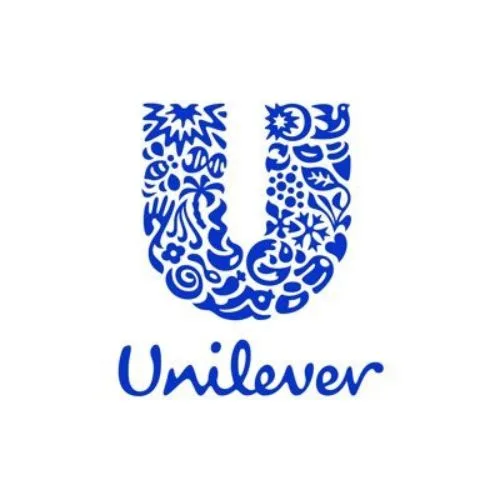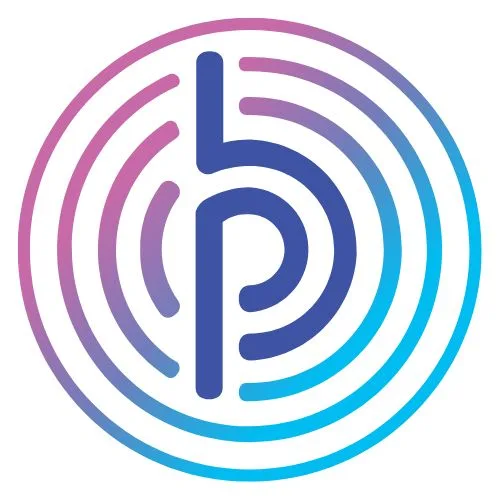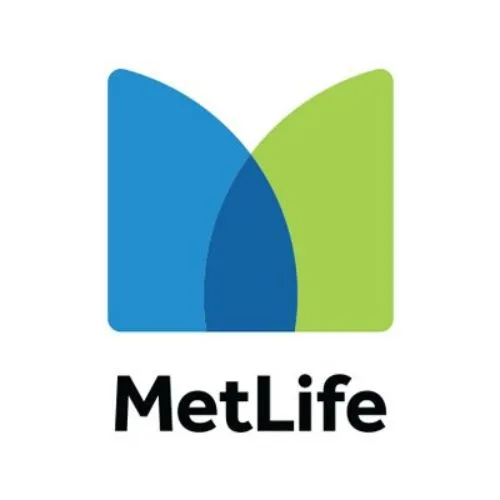- DISC Based Workshops
Conflict Management using DISC
Navigate Conflicts Management with Confidence: Using DISC-Based Conflict Management by Synergogy.

People Trained
DISC Reports - Customer Service Version
Industry Sectors Covered
Companies using the highly acclaimed TTI Success Insights DISC Reports
Elevate Your Team's Conflict Management Skills using DISC
This in-depth workshop provides attendees with the necessary skills to manage conflicts efficiently, focusing on understanding varied behavioral/emotions styles using DISC profiling. Conflict Management using DISC teaches strategies to enhance communication skills and handle difficult situations effectively. Participants will gain insights into adapting their interaction styles to meet diverse needs, ensuring productive and harmonious conflict resolution.
- Free 1 Hour Consultation
- In-Person or Virtual
- Fully Customised
Course Content
Conflict Management using DISC t is a comprehensive program designed to enhance conflict management skills through the application of DISC assessment. The Conflict Management using DISC workshop equips participants with the tools to understand diverse behaviors, improve communication strategies, and deal with conflicts to crete win-win outcomes. Participants will learn to leverage DISC profiling to identify various style patterns and emotions, adapt their communication style, and manage challenging conflicts effectively.
Introduction to DISC
Brief introduction of DISC, its construct and history.
DNA of DISC Assessment
Dominance, Influence, Steadiness & Compliance.
Self-Discovery using DISC
Discovering personal strengths and weaknesses using your own DISC profile.
Understanding Conflict
Definition and types of conflict in the workplace.
Causes and Triggers of Conflict
Common causes in the workplace. Recognizing early signs of conflict.
Impact of Conflict on Teams
Case studies: Analyzing real-world scenarios.
Conflict Resolution Strategies
Communication Skills in Conflict Resolution. Role-play exercises.
Problem-Solving Techniques
Finding win-win solutions. Practical exercises and group activities.
Dealing with Difficult Situations
Handling aggression, passive-aggressive behavior, and avoidance.
Self Reflection using DISC
Understanding own strengths and limitations and using them to create personal strategies.
Applying Learning to Workplace
Participants engage in role-plays / real-plays based on common workplace conflicts.
Post Training Action Planning
Developing personal action plans for Conflict Management using DISC.
Who should attend?
- Managers and Supervisors
- Human Resources Professionals
- Project Managers
- Customer Service Professionals
- Healthcare Professionals
- Educators and School Administrators
Key benefits
- Improved Communication
- Enhanced Problem-Solving Skills
- Increased Team Efficiency
- Strengthened Relationships
- Reduced Stress
- Positive Work Environment
Course methodology
- Instructor-led Facilitation
- Cohort Learning - Synergogy
- Case Work & Scenarios
- Interactive Real Play
- Personal Reflection and Action Planning
Course materials
- Personal DISC Profile Report
- Participant Workbook
- Case Study Booklets & Handouts
- Ready Reckoner Laminates
- Personal Action Plan Template
Schedule a 30 minute call to discuss your needs.
Choose from a Range of customizations
Choose from a range of solutions to suit your every need. Our course can be customised to your industry or business unit context. What’s more, we are happy to deliver this course face to face or in virtual, instructor-led formats.
Other Courses Using DISC
Enhance EQ
Enhance your Emotional Intelligence (EQ) and interpersonal skills using the DISC framework, fostering self-awareness and empathetic connections.
Team Building
Boost team synergy and collaboration by applying the DISC framework, enhancing understanding and communication within your team.
Sales Training
Elevate your sales effectiveness by integrating the DISC framework, honing your ability to understand diverse customer profiles and communicate persuasively.
Customer Service
Enhance your customer service skills by applying the DISC framework, enabling better understanding of customer behaviors & improving interaction quality.
Personal Development
Advance your personal development by utilizing the DISC framework to deepen self-understanding and enhance your interpersonal relationships.
Leadership Coaching
Foster personal growth by leveraging the DISC framework, enhancing self-awareness and interpersonal skills for holistic personal development.
Communication Skills
Improve your communication skills through the DISC framework, fostering clearer understanding and more effective interactions with others.
First Time Managers
For new managers, enhance leadership & team management skills using the DISC framework, fostering effective team management and productivity.
Let’s talk about your big project
Write to us and let us know how we can help you with your talent needs at programs@synergogy.com
Frequently asked questions
Everything you need to know about Conflict Management Using DISC.
Conflict management is the strategic handling of disputes and disagreements to achieve constructive outcomes. It involves employing effective communication techniques, like active listening and clear, assertive expression, and using specific processes and tools to navigate and settle conflicts in a manner that respects all parties involved. The goal is to collaboratively work towards solutions that address concerns and improve relationships, whether between individuals, within teams, or across organizations.
There are five widely recognized conflict management styles, each with its unique approach to resolving disagreements:
- Collaboration: Seeking a win-win situation by addressing the needs and concerns of all parties involved.
- Competing: Asserting one’s viewpoint at the potential expense of another, often used in a zero-sum or high-stakes situations.
- Avoiding: Deliberately sidestepping the conflict or delaying its resolution, sometimes to prevent escalation or when the issue is trivial.
- Accommodating: Prioritizing the relationship over one’s own interests by conceding to the other party’s demands.
- Compromising: Finding a middle ground where each party makes concessions to arrive at a mutually acceptable solution.
In the realm of conflict management, it is crucial to understand the root causes of discord within a team or organization. Here are the primary sources:
- Differing Facts: Conflicts often arise from varied understandings or interpretations of information, leading to disagreements over what is true or factual.
- Conflicting Goals: When individuals or teams have different objectives, it can lead to a clash in what each party is trying to achieve.
- Disparate Methods: Variances in preferred processes or approaches to tasks and problem-solving can lead to conflict, particularly when there is no agreed-upon method.
- Incompatible Values: The most profound conflicts can occur when there is a fundamental misalignment in core beliefs and principles between team members or groups within an organization.
- Decreased Morale: Conflicts can erode team spirit and lead to a demotivated workforce.
- Reduced Productivity: Persistent disagreements often result in less effective work output.
- Increased Absenteeism: Employees may avoid the workplace to escape conflict.
- Damaged Relationships: Disputes can lead to lasting rifts between colleagues.
- Negative Impact on Health: Stress from conflict can contribute to health issues.
- High Turnover Rates: Frequent conflicts can drive employees to leave the organization.
- Impaired Communication: Conflict can disrupt open and effective communication.
- Compromised Decision-Making: Tension can lead to poor or hasty decisions.
- Increased Workload: Conflicts can cause delays and extra work for teams.
- Negative Organizational Culture: Ongoing conflicts can create a toxic workplace environment.
- Legal Issues: Disputes can escalate to legal challenges or lawsuits.
- Customer and Client Impact: The effects of internal conflicts may spill over and affect service quality.
- Difficulty in Attracting Talent: A conflict-ridden reputation can deter potential employees.
- Loss of Innovation and Creativity: Stress and tension can stifle creative thinking and innovation.
- Strained Leadership: Conflicts can test and weaken leadership effectiveness.
Conflict management is essential for fostering a positive work environment where each individual feels respected and heard. Effective management of conflict boosts communication and relationships, leading to enhanced interpersonal dynamics and understanding. This, in turn, increases productivity by allowing teams to concentrate on their objectives without the distraction of unresolved disputes. Moreover, a workspace that is free from conflict is conducive to innovation and creativity, as it encourages collaborative problem-solving and the generation of new ideas.
Moreover, conflict management is critical in preventing disagreements from escalating into more significant issues. It improves decision-making by ensuring that choices are made clearly and without the hindrance of unresolved tensions. Teams become stronger through conflict management, as it builds trust and fosters a culture of collaboration. Additionally, it aids in the development of emotional intelligence, enhancing the ability to adeptly navigate emotions and interpersonal dynamics.
Managing conflict effectively also contributes to the reduction of stress and burnout, thereby safeguarding mental health. It highlights strong leadership and problem-solving skills, which are key to effective leadership. Furthermore, by promoting a culture where feedback is valued, conflict management encourages continuous improvement within the team or organization. Lastly, it serves to preserve the reputation of the organization, enhancing its image both internally and externally.
Conflicts in the workplace can arise from a multitude of sources:
- Communication Issues: Misunderstandings due to differing communication styles or lack of clear dialogue.
- Interpersonal Disagreements: Clashes in personality or personal values can lead to friction.
- Resource Scarcity: Competition for limited resources can create tension.
- Goal Misalignment: When individual or departmental objectives do not align, it can result in conflict.
- Power Dynamics: Disputes over authority and control often lead to conflict.
- Role Uncertainty: Ambiguity in job responsibilities can cause overlap and disagreements.
- Performance and Management: Inadequate training, poor management, and unclear expectations contribute to workplace strife.
- Work Conditions: A challenging or inequitable work environment can be a significant source of discontent.
- Discrimination: Bullying, harassment, lack of equal opportunities, and unfair treatment are serious issues that can lead to disputes.
- Cultural Differences: Diverse backgrounds can sometimes lead to misunderstandings if not appropriately managed.
- Recognition and Leadership: Lack of acknowledgment or ineffective leadership can foster conflict.
- Change Management: Poorly managed change can unsettle teams and lead to resistance.
- Personal Stressors: External personal issues affecting work performance can also be a cause.
- Team Dynamics: Dysfunctional team interaction often results in conflict.
- Biases and Perceptions: Stereotypes or perceived unfairness can create undercurrents of conflict.
Effective conflict resolution in the workplace can be achieved through a variety of strategies:
- Open Communication: Encourage a culture where concerns can be expressed openly and without fear of retribution.
- Active Listening: Ensure all parties feel heard by practicing attentive and empathetic listening.
- Problem Definition: Clearly define the issue at hand to understand the conflict fully.
- Seeking Common Ground: Look for areas of agreement that can form the basis for a solution.
- Use “I” Statements: Communicate personal perspectives without placing blame.
- Emotional Detachment: Strive to separate personal feelings from the problem to focus on the issue.
- Collaborative Problem-Solving: Work together to find a mutually beneficial resolution.
- Mediation: Engage a neutral third party to facilitate dialogue and understanding.
- Clear Guidelines: Establish and enforce policies that outline acceptable behavior and conflict resolution procedures.
- Conflict Resolution Training: Equip staff with the skills to handle disputes effectively.
- Leadership Involvement: Have leaders model and support conflict resolution efforts.
- Realistic Expectations: Set achievable goals for resolution and workplace behavior.
- Documenting Agreements: Keep written records of agreements to ensure clarity and accountability.
- Follow-Up: Check in with involved parties to ensure the conflict remains resolved.
- Learning from Conflict: Use each conflict as an opportunity to improve personal and organizational practices.
To proactively prevent conflicts in the workplace, consider implementing these strategies:
- Foster a Positive Culture: Cultivate an environment that values respect, collaboration, and open communication.
- Clear Communication: Maintain transparency and clarity in all forms of communication to avoid misunderstandings.
- Define Roles: Ensure that each team member understands their responsibilities and the expectations placed upon them.
- Team Building: Regular team-building activities can strengthen relationships and promote understanding.
- Conflict Resolution Training: Equip employees with the skills to manage and resolve conflicts should they arise.
- Policies and Procedures: Have clear, fair policies and procedures in place that address conflict management.
- Open Door Policies: Encourage leadership to be approachable, allowing employees to share concerns freely.
- Regular Check-Ins: Conduct frequent meetings to discuss issues and gauge team morale.
- Recognition and Feedback: Acknowledge good work and provide constructive feedback to build a culture of appreciation.
- Set Realistic Goals: Ensure that expectations and goals are achievable, which can reduce stress and potential conflict.
- Diversity and Inclusion: Embrace diversity and create inclusive spaces where all voices are heard and valued.
- Grievance Resolution: Implement a fair and effective process for addressing complaints and grievances.
- Conflict Coaching: Offer coaching to help individuals navigate and resolve disputes effectively.
- Address Negative Behaviors: Take immediate action against bullying and harassment to prevent toxic workplace dynamics.
- Lead by Example: Leadership should model the behavior and approaches they expect from their team.
Communication is the cornerstone of effective conflict management. It facilitates understanding by allowing parties to express their perspectives and listen to others, which is vital for resolving misunderstandings and developing joint solutions. Models like the Thomas-Kilmann conflict mode instrument underscore the importance of assertiveness and cooperativeness in communication, offering a framework to approach conflict with varying strategies.
Building on this, the dual concern model adds a focus on the value of relationships, advocating for a collaborative style that prioritizes both individual goals and the relationship’s health. The interest-based relational (IBR) approach takes this further, aiming for a win-win scenario by addressing the underlying needs and interests of the parties involved rather than just superficial demands. This approach requires a foundation of trust, understanding, and respect, achieved through active listening, effective problem-solving, and adept negotiation skills. Together, these models highlight that strategic communication is not just about talking but also about listening, understanding, and forging connections that transform conflict into a constructive dialogue.
Effective conflict management relies on a diverse set of skills that facilitate understanding, resolution, and positive outcomes, including:
- Active Listening: Fully concentrating, understanding, responding, and remembering what is being said.
- Problem-Solving: The ability to find solutions to difficult or complex issues.
- Facilitation and Mediation: Assisting the parties in a conflict to find a mutually agreeable solution.
- Assertiveness: Communicating one’s needs, thoughts, and feelings confidently without aggression.
- Nonverbal Communication: Conveying messages through body language, facial expressions, and tone of voice.
- Humor: Appropriately using light-heartedness to diffuse tension.
- Decision-Making: Making choices that resolve conflicts in a fair and responsible manner.
Leaders are pivotal in cultivating a culture of conflict resolution within teams and organizations. They set the standard by exemplifying conflict resolution skills in their behavior. Clear expectations for conflict resolution are communicated, and team members are provided with training to develop these skills. Open channels of communication are established to ensure transparency and honesty in interactions.
Feedback is not only encouraged but also valued at all organizational levels, fostering an environment where active listening is a priority and different viewpoints are considered. Positive behaviors that lead to effective conflict resolution are recognized and rewarded, while clear grievance processes are implemented to address and resolve issues.
Leaders must also foster collaboration, encouraging a team-based approach to resolving conflicts and addressing them early to prevent escalation. They provide mediation resources for more complex disputes and define team norms that support a healthy approach to conflict management.
A growth mindset is promoted, instilling the belief that conflict resolution skills can improve with effort. Constructive feedback is encouraged, ensuring it is specific, actionable, and delivered with kindness. Leaders regularly assess and adjust team dynamics for continuous improvement and engage in individual conversations to understand team members’ perspectives and needs.
Finally, leaders help in depersonalizing conflict, guiding team members to focus on the issue rather than personal attributes, thereby maintaining a professional and productive work environment.
The key difference between constructive and destructive conflict lies in their outcomes, approaches, behaviors, and impacts on relationships:
- Constructive Conflict:
- Outcomes: Leads to growth, learning, and innovation; fosters better understanding and creative solutions.
- Resolution: Focuses on collaboratively addressing the underlying issues to achieve mutually beneficial outcomes.
- Approach and Behavior: Emphasizes a positive, open mindset aimed at improvement and collaboration; involves respectful communication, active listening, and a willingness to understand and integrate diverse perspectives without personal attacks.
- Impact on Relationships: Strengthens relationships and builds trust, contributing to a healthy team dynamic and a positive organizational culture over time.
- Destructive Conflict:
- Outcomes: Results in resentment, hostility, and a decline in morale; can escalate to create a hostile environment.
- Resolution: Often lacks effective resolution; may involve blame and personal attacks with a focus on winning at the other’s expense.
- Approach and Behavior: Characterized by negativity, defensiveness, aggression, and an unwillingness to listen or empathize; behaviors are aimed at undermining the other party.
- Impact on Relationships: Strains and erodes trust in relationships, leading to long-term damage and potentially creating a toxic work environment.
Understanding these distinctions is vital for leaders and team members to navigate conflicts effectively, ensuring they lead to positive outcomes rather than detrimental ones.
Avoiding these common mistakes can significantly enhance the effectiveness of conflict management:
- Avoiding the Conflict: Neglecting conflicts can lead to escalation and a breakdown in relationships.
- Overgeneralizing: Making sweeping statements can cloud the specific issues at hand.
- Rigid Mindsets: Insisting on a single “right” way can prevent the exploration of alternative, viable solutions.
- Poor Listening: Active listening is essential for understanding all sides; failing to do so can result in unresolved issues.
- Making Assumptions: Assuming you know others’ thoughts or intentions can lead to misunderstandings.
- Blame Game: Pointing fingers without addressing the problem can create defensiveness and hinder resolution.
- Winning Over Resolving: Trying to “win” an argument can damage relationships and prevent genuine solutions.
- Stonewalling: Refusing to communicate or engage with the conflict can halt progress towards resolution.
- Personal Attacks: Character attacks escalate conflicts and damage professional relationships.
- Avoiding or Escalating: Both extremes prevent effective conflict resolution.
- Not Following Up: It’s crucial to ensure that agreed-upon actions are implemented.
- Failing to Empathize: Understanding others’ feelings is vital for resolving conflicts amicably.
- Ignoring Underlying Issues: Addressing only surface issues can lead to recurring conflicts.
- Unclear Boundaries: Without clear expectations, conflicts can arise from misunderstandings.
- Excluding Relevant Parties: All stakeholders should be involved for a comprehensive resolution.
- Non-constructive Feedback: Feedback should be aimed at improvement, not just criticism.
- Not Learning from Conflicts: Use past conflicts as learning opportunities to avoid repeating mistakes.
Still have questions?
Can’t find the answer you’re looking for? Please feel free to write to us.
Our Blog
Boosting Team Efficiency with DISC Profiles
Learn how to boost team efficiency with DISC Profiles. The DISC Team Profile offers you all you need to enhance your team's productivity.
Harnessing DISC Assessments for Enhanced Team Collaboration
Learn how to harness DISC assessments to enhance team collaboration with Synergogy's world class DISC based team building workshops.
What is BEI?
Our comprehensive guide unravels the nuances of BEI, from its foundational concepts to its practical application providing invaluable insights for HR professionals.
The Manager’s Guide to Mastering BEI Techniques
Discover the essentials of Behavioral Event Interviewing (BEI) in this in-depth guide, tailored for managers and HR professionals. Learn about crafting questions, integrating technology, and best practices to enhance talent acquisition and make informed hiring decisions.
Competency-Based Interviewing: An In-Depth Exploration into BEI
Dive into Behavioral Event Interviewing (BEI) and transform your hiring strategy. This guide introduces the essentials of crafting effective BEI questions and evaluating candidate responses, seamlessly integrating these methods into your talent acquisition process.
7 Proven Strategies for Managing Difficult Customers with DISC: Transforming Tensions into Triumph
Gaining insight into both personal and customer behaviours and preferences can be invaluable for customer service professional striving to provide exceptional service to challenging customers.
Building a Successful Succession Plan: A Step-by-Step Guide
Succession planning is a strategic process aimed at identifying and developing potential leaders within an organization who can replace key leaders when they leave, retire, or are unable to perform their duties. It involves nurturing high-potential employees for advancement, ensuring business continuity, and promoting a culture of talent development.
A Comprehensive Guide to Competency Mapping
Competency mapping is a strategic HR process used to identify and analyze the knowledge, skills, and behaviors needed to perform tasks efficiently and effectively within an organization. It aids in understanding the capabilities of current employees, thus facilitating informed decisions on recruitment, training, and performance evaluation.
The Comprehensive Guide to Creating Mission, Vision, and Values Statements
Crafting mission, vision, and values statements is an integral aspect of an organization's strategic planning process. These declarations provide a roadmap guiding the organization's decisions and actions, while also instilling a sense of purpose among its stakeholders
The Ultimate Guide to Organizational Development
Organizational development is a meticulously planned strategy. It cultivates growth and change within organizations, fostering the enhancement of organizational effectiveness and employee […]
Stepping Up: A Comprehensive Guide for First-Time Managers
The transition from a specialist or an individual contributor to the role of a manager is often filled with a mixture of excitement and apprehension. For many, it is the first step into the realm of leadership, offering a broader perspective of the organization and presenting an entirely new set of responsibilities. This voyage from being an individual player to becoming a first-time manager is as thrilling as it is profound.
Navigating Conflict: A Comprehensive Guide to Conflict Management
"Conflict is the gadfly of thought," so proclaimed the esteemed philosopher, Socrates. It stings and nudges us out of our complacency and comfort zones. In today's dynamic organizations, his wisdom resonates more than eve
Implementing a Mentorship Program: Ultimate Guide
A mentorship program can have a profound impact on organizations, promoting professional growth, fostering stronger relationships, and boosting employee satisfaction. This comprehensive guide offers a practical roadmap for organizations to establish and implement a successful mentorship program.
Job Evaluation Using Point Factor
Navigate through the realm of job evaluation by delving into the effective Point Factor Method. Discover how this method revolutionizes workplace productivity and enhances human resource management.
India’s Premier Design Thinking Certification Program – CDTP™
In a world consistently propelled by digital innovation, the realm of Design Thinking is becoming increasingly prominent. The torchbearer in this transformative journey, particularly in India, is the Synergogy Design Thinking Certification program. More than just an educational platform, Synergogy offers an unrivalled roadmap to a prosperous and burgeoning professional future.
Mastering Certified Competency-Based Interviewing Skills
In today's competitive job market, having strong interviewing skills is crucial for both job seekers and employers. To effectively assess candidates and make informed hiring decisions, organizations are increasingly adopting competency-based interviewing techniques. In this comprehensive guide, we will delve into the realm of certified competency-based interviewing skills, providing valuable insights, strategies, and tips to help you master this approach and excel in your hiring process.
Introduction to Interviewing Skills Training Certification
In the ever-evolving landscape of the modern workplace, companies need to adapt swiftly to keep up with the changing times. The traditional method of evaluating candidates based solely on their resumes and qualifications is no longer sufficient. It is the interviewing skills that hold the key to unlocking a candidate's true potential.
Mastering the Art of Interviewing Skills: A Comprehensive Guide
Whether you're looking to be the next Sherlock of recruitment or the Usain Bolt of job candidates, you've come to the right place. Strap yourself in and get ready for a whirlwind ride through the world of interviews, a dimension where everything you say or don't say can change your destiny.
Mastering CEO Succession Planning
In the fast-paced corporate world, CEO succession planning is not just a strategy, it's a necessity. The role of a CEO is pivotal in steering the organization towards success. However, the inevitability of change means that companies must be prepared for the day when their current leader steps down. This is where CEO succession planning comes into play. It ensures that there is a seamless transition of leadership, safeguarding the company’s vision, and maintaining its growth trajectory.
5 Simple Steps to Effective Problem Solving
The ability to solve problems is a crucial skill in the modern workplace. It can make the difference between success and failure, […]
Paving Your Path as a First-Time Manager: A Definitive Guide
Stepping into the world of management for the first time can often feel like venturing into a jungle without a compass. It’s a daunting landscape filled with challenges, expectations, and a new lexicon of ‘manager-speak’. But fear not! Here’s our comprehensive guide, sprinkled with a little wisdom from seasoned managers and some hard-learned lessons, to help you navigate your journey with confidence.
6 Leaders Share Their Insights on Diversity, Equity, and Inclusion
In this article, we interview six leaders from various industries to hear their thoughts on how to create a more inclusive workplace […]
How to develop an agile culture for startups?
The new role of Learning & Development in the post-pandemic era. COVID-19 has forced companies to re-image how L&D should function.
5 Mistakes to avoid while hiring internationally
The new role of Learning & Development in the post-pandemic era. COVID-19 has forced companies to re-image how L&D should function.
Creating a blueprint for organizational mental health
The new role of Learning & Development in the post-pandemic era. COVID-19 has forced companies to re-image how L&D should function.
BEI Certification Program
The Certified BEI Practitioner (C-BeiP)™ accreditation is a 8-hour BEI Certification Program. This interviewing skills certification program is endorsed by Human Resource Certification Institute (HRCI) for 8 Hours of continuing education units.
A Retro Look at Learning & Development: Preparing for the Future
The new role of Learning & Development in the post-pandemic era. COVID-19 has forced companies to re-image how L&D should function.
Self Regulation
Building your emotional intelligence by improving self regulation is one of the most difficult part of improving your Emotional Quotient.
Online DISC Certification – New Zealand
Master DISC application! Learn from the company that first computerised DISC in 1984.
Online DISC Certification – Melbourne
Master DISC application! Learn from the company that first computerised DISC in 1984.
Online DISC Certification – Brisbane
Master DISC application! Learn from the company that first computerised DISC in 1984.
Online DISC Certification – Sydney
Master DISC application! Learn from the company that first computerised DISC in 1984.




















